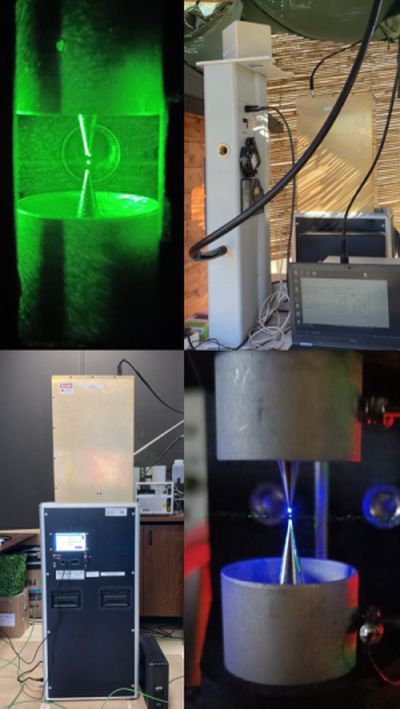
- Ref. P20_00136
- Realization: 04/10/2021 a 30/06/2023
- Funding Agency: Project funded by FEDER/Consejería de Transformación económica, Industria, Conocimiento y Universidades. Junta de Andalucía. Fondo Europeo de Desarrollo Regional, "Una manera de hacer Europa". Andalucía se mueve con Europa.
- Principal Investigator: Francisco José Olmo Reyes.
- Researchers: Elena Bazo González, Daniel Pérez Ramírez, Paloma Cariñanos González, Arturo Quirantes Sierra, Juan Luis Guerrero Rascado, Inmaculada Foyo Moreno
- Collaborators: Antonio Valenzuela Gutiérrez, Inmaculada Alados Arboledas, Fernando Rejano, Andrea Casans.
Abstract:
In the last decades numerous authors have highlighted that the main uncertainties about climate change are due to the lack of precision in the knowledge of the properties of atmospheric aerosol particles, mainly non-spherical ones. There are two key factors to be resolved: the accuracy in the knowledge of the radiative properties of the particles (phase function, single scattering albedo and refractive index) and the uncertainties in the implementation of these properties in radiative forcing prediction models. In addition, a characterization in different layers of the atmosphere is needed. From the experimental point of view remote sensing is the appropriate tool for continuous monitoring of atmospheric aerosol, but it requires more information in inversion models. In this project we intend to contribute to the progress in the study of the phase functions of non-spherical particles suspended in the atmosphere at various wavelengths and for polarized light. The focus will be on the study of samples of mineral dust intrusions and pollen episodes occurring in Andalusia, whose intensity and frequency in our region seem to be increasing. In particular, we will advance in the modeling of the scattering and absorption properties for different types of non-spherical particles taking into account the polarization, we will characterize exhaustively the phase functions during different measurement campaigns, we will determine in a precise way the optical properties for individual particles, and their variations with the change in their thermodynamic properties, and we will evaluate the impact of the new phase functions in the optical properties obtained in inversion codes. All this will be carried out using the instrumentation of the AGORA network (Granada and Sierra Nevada), operated by the GFAT, both in its fixed installations and in particular campaigns.